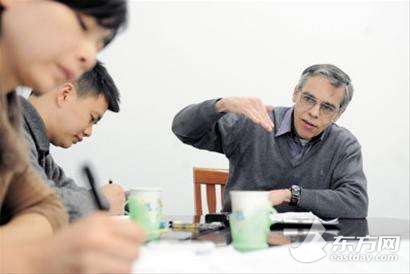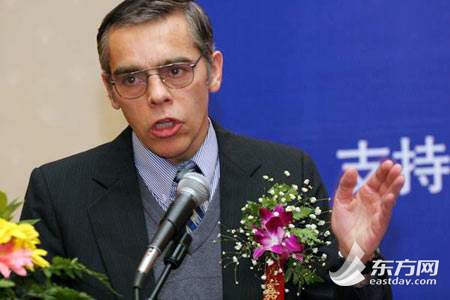Michael R. Phillips’s 42 years in China
A few desks against the wall; photos and professional books on a simple bookshelf; cockroach killers under the sofa—this is what the office of Michael R. Phillips is like. Hailing from Canada, Michael is a Canadian who can speak Chinese fluently. He is Director of the Suicide Research and Prevention Center of the Shanghai Mental Health Center at Shanghai Jiao Tong University School of Medicine. He is a professor in Psychiatry and Global Health at Emory University. He is also Director of the WHO Collaborating Center for Research and Training in Suicide Prevention.

A willing heart to make contributions
In 1976, following the strong recommendation of his classmates, Michael first set foot in China. During his three weeks here, he noticed that although China was poor, public health was highly valued, which has laid a foundation for the future improvement of the whole country’s health level. China’s public health system has offered an example to other developing countries, especially in Africa.

After studying in China for two years, Michael gave up his original decision to go to Africa. Instead, he made up his mind to start a career in China and make his contributions in East Asia’s heartland. “I think I can do something here,” he said. To improve his professional abilities Michael served as a resident in the Department of Psychiatry at the University of Washington, where he obtained two bachelor’s degrees in epidemiology and anthropology. In 1985, he returned to China after graduation and has stayed in the country since then.
Over the past decades, Michael was a family physician specializing in schizophrenia in southern China’s Hunan Province. He also set up a clinical epidemiology center in China as a representative of the International Center for Clinical Epidemiology. In 2010, he came to Shanghai and started his work and research in the Shanghai Mental Health Center at Shanghai Jiao Tong University School of Medicine.
A witness to China’s mental health services
Michael is a witness to the changing mental health services in China over the years. “When I came here in 1985, research on mental health was not valued and respected in China. The level of research was not advanced and the funding was not enough. What was worse, there was no related course. Psychiatry was a discipline affiliated to Neurology. It was not until 1994 that it became an independent discipline,” said Michael. However, in spite of that, graduates from medical schools were unwilling to work in the Department of Psychiatry. Even if they were assigned to the department, they would try in every way to transfer to other departments. No one wanted to stay.“You can say that the Department of Psychiatry was ignored at that time.”

But things began to change in recent years. “I can clearly feel that since the medical reform in 2009, mental health issues have raised more attention. The status of psychiatry in hospitals is still not comparable to surgery and internal medicine, but the gap is significantly narrowing. Now there are more and more medical students aspiring to become a psychiatrist,” said Michael.
After coming to Shanghai, Michael also noted the gap in mental health services in different regions of China. “As one of the most developed cities in China, Shanghai is a national leader in mental health services. In terms of that, in Shanghai, the management force is concentrated and highly international, and the average number of psychiatrists per capita is more than that in most parts of China.” Currently, by leveraging the best practices of Shanghai, Michael is working to help some underprivileged areas to establish a mental health problem prevention and control system.

(Michael’s wishes for China’s further reform and opening up: Everyone should increase their awareness on mental health and care for people with mental illnesses.)
